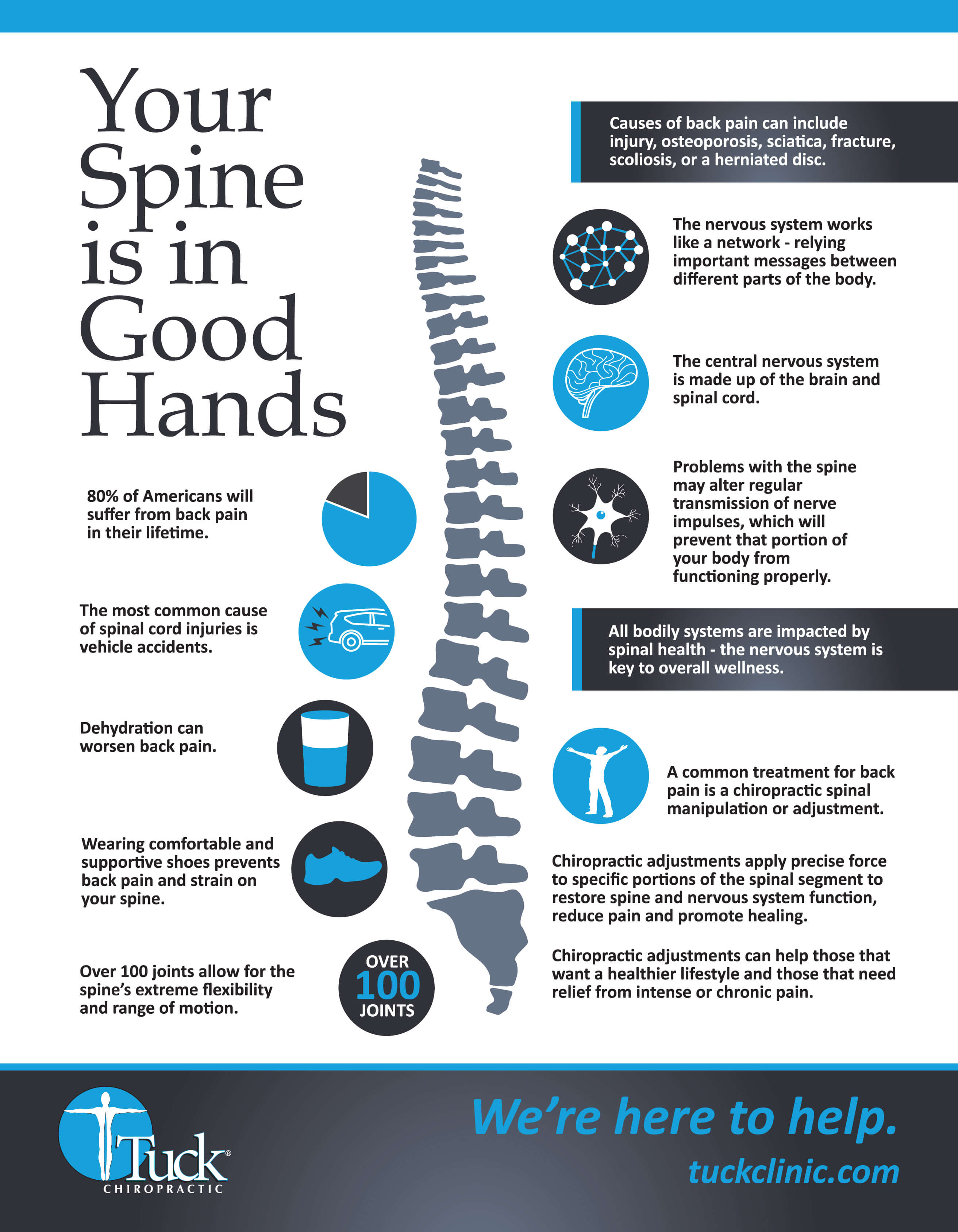Discover The Underlying Relevance Of Your Back Pain And Empower Yourself To Improve Your Wellness
Discover The Underlying Relevance Of Your Back Pain And Empower Yourself To Improve Your Wellness
Blog Article
Content Writer-Hamilton Jensen
If you're experiencing neck and back pain, your body might be attempting to inform you something more than simply discomfort. The way your back feels can provide important ideas concerning your overall wellness. Recognizing the certain type of discomfort you're feeling and any going along with symptoms is essential to deciphering the secret behind your discomfort. Allow's explore the common problems and signs and symptoms related to different types of back pain to clarify what your body might be signaling.
Types of Neck And Back Pain
When it involves pain in the back, there are various kinds that you may experience. One usual type is muscle discomfort, frequently brought on by overuse, stress, or injury to the muscular tissues and ligaments supporting the back. This kind of pain can vary from moderate pain to severe and devastating discomfort.
Another type is nerve discomfort, which can arise from conditions like herniated discs or sciatica. Nerve discomfort typically presents as a sharp, shooting experience that radiates down the leg.
Joint discomfort in the back can come from concerns like joint inflammation or sacroiliac joint dysfunction. This sort of discomfort is usually felt in the lower back and can be aggravated by particular motions.
In addition, back pain can be associated with architectural problems such as spinal stenosis or vertebral cracks. Understanding the sort of neck and back pain you're experiencing is crucial in establishing the appropriate treatment and management methods.
Common Effects to Look For
Moving beyond the various sorts of pain in the back, it is essential to recognize the typical signs that can signify underlying problems.
Relentless pain in the back that intensifies with movement or in the evening could indicate a much more major trouble. Tingling or tingling in Learn Even more Here or feet, especially when accompanied by weak point, could indicate a nerve-related problem. If you experience abrupt weight-loss together with pain in the back, it could be an indicator of a much more systemic problem.
Take notice of any adjustments in bladder or bowel function, as this could be linked to spine compression. Fever, chills, or night sweats combined with back pain might indicate an infection. Watch out for discomfort that radiates down one or both legs, possibly a sign of sciatica.
Health And Wellness Conditions Linked to Pain In The Back
If you struggle with pain in the back, it's critical to comprehend the potential health and wellness problems connected to this discomfort. Pain in the back can be a signs and symptom of numerous underlying concerns, consisting of muscle mass strains, herniated discs, osteoarthritis, spinal stenosis, and even conditions like kidney stones or infections.
Muscle mass stress are common and typically result from lifting hefty objects or abrupt movements.
Herniated discs take place when the soft tissue in between vertebrae protrudes, triggering nerve irritability.
Osteo arthritis, a degenerative joint disease, can cause neck and back pain as cartilage wears down.
Back constriction, the narrowing of the spine canal, can put pressure on nerves.
Kidney rocks might cause intense neck and back pain if they relocate right into the urinary system.
https://www.healthline.com/health/ovarian-cyst-back-pain like back osteomyelitis can likewise manifest as pain in the back. Comprehending these potential health and wellness conditions can aid you look for proper medical care and management for your pain in the back.
Verdict
So, next time your back harms, take note of the kind of discomfort and going along with symptoms. Maybe a signal from your body concerning underlying health problems like muscular tissue pressure, nerve concerns, joint problems, or even architectural problems. By recognizing these indications, you can take aggressive actions to resolve the root cause of your pain in the back and improve your general health and wellness and well-being.
